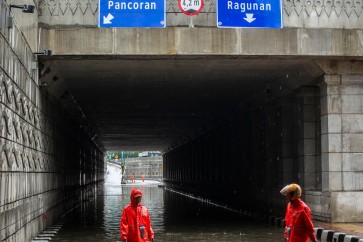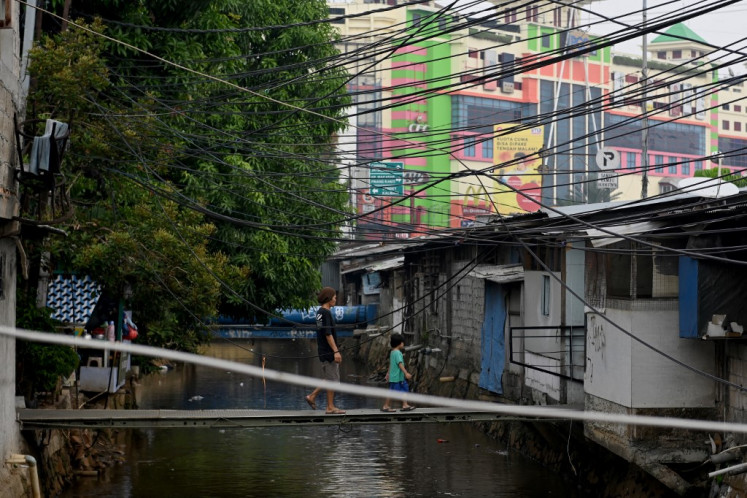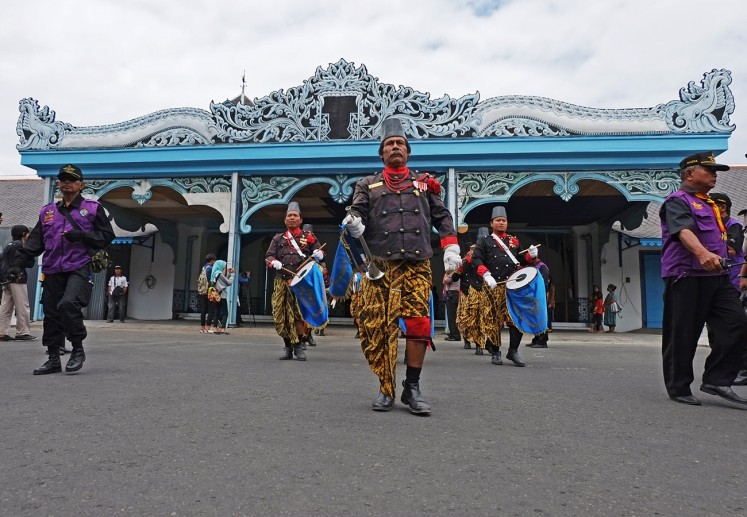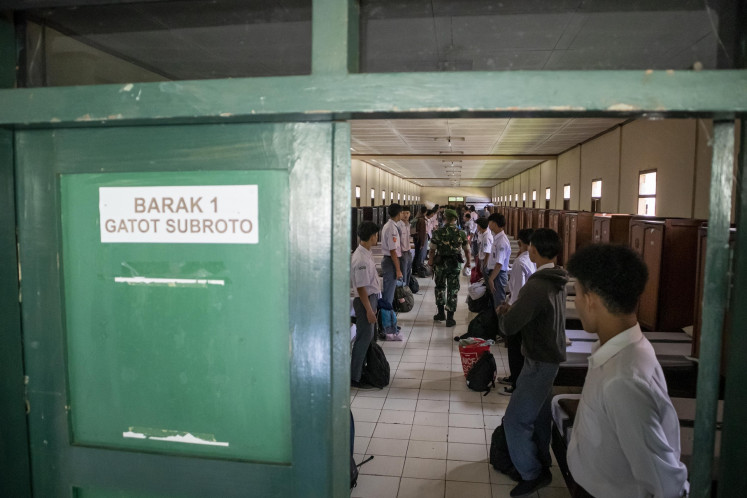RI plans joint naval exercise in SE Asia
Cross borders: (From left) University of the Philippines’s Professor Emeritus of political science Carolina G
Change text size
Gift Premium Articles
to Anyone

C
span class="caption" style="width: 510px;">Cross borders: (From left) University of the Philippines’s Professor Emeritus of political science Carolina G. Hernandez, former Indonesian ambassador to Australia and The Jakarta Post senior editor Sabam Siagian, Indonesian Law and Human Rights Minister Amir Syamsuddin, former chief of Australian defense forces air chief marshall (ret.) Angus Houston and India’s Defence Ministry’s Chief of the Integrated Defense Staff, Sanjiv Langer, speak at a discussion on porous borders during the Jakarta International Defense Dialogue (JIDD) at the Jakarta Convention Center on Thursday. (JP/Wendra Ajistyatama)
The Indonesian government is planning to invite sailors from ASEAN countries and those beyond the region to take part in a joint naval exercise as part of efforts to improve stability in Southeast Asian waters, which have long been the site of territorial disputes.
Navy chief of staff Vice Adm. Marsetio said on Thursday that the Indonesian Navy (TNI-AL) would pitch the plan during the International Maritime Security Symposium in Jakarta, which is slated for December. The forum is expected to draw more than 45 navy chiefs from around the world.
“We would like to give a short briefing that we have a plan to conduct the multilateral exercise. For the first step, we would like to invite all ASEAN members. It could also be ASEAN plus two, three or 10 [partner countries],” he said at the Jakarta International Defense Dialogue (JIDD) in Central Jakarta.
Marsetio said the naval exercise could help the region deal with a wide range of maritime security challenges, including territorial disputes, transnational crimes, safety of sea transportation and natural disasters.
Maritime security in the region is prone to conflict as several ASEAN countries and China are in dispute over the resource-rich South China Sea. ASEAN and China are discussing the formulation of a Regional Code of Conduct (CoC) in the contested waters.
Marsetio, however, declined to confirm if the planned exercise was prompted by simmering tensions over the South China Sea.
“The important issue is how the countries in the region can enhance their humanitarian and disaster-relief efforts,” he said.
Marsetio was upbeat that the planned naval exercise could materialize, as several ASEAN countries had already collaborated in maritime security initiatives, such as the Malacca Strait Sea Patrol.
In this program, naval forces from Indonesia, Singapore, Malaysia and Thailand jointly patrol the Strait of Malacca, the 805-kilometer main shipping channel between the Indian and Pacific oceans.
The sea patrol, which was initiated in 2004, has curbed smuggling along the porous border.
“[The sea patrol] could become a template for cooperation agreements between ASEAN navies. For example, ASEAN member states should first agree upon areas considered prone to maritime security threats,” Marsetio said.
The agreement, he said, should be followed by a commitment to prepare ready-to-deploy warships to respond to any threat or escalations in specified areas.
Rear Adm. Anne Cullerre, joint commander of armed forces in French Polynesia, welcomed the idea of a naval exercise in Southeast Asia.
“I think the proposal for the exercise is good […] More people will talk and work together. It would encourage greater cooperation and interoperability,” she said at the JIDD.
Also at the discussion, Coordinating Political, Legal and Security Affairs Minister Djoko Suyanto warned that energy and food scarcities could pose a threat to security and stability in the region.
“Looking at the rapid growth of populations, leaders must ensure uninterrupted supplies of food, energy and water for their people. A failure to fulfill these needs could become a potential source of conflict,” he said.









